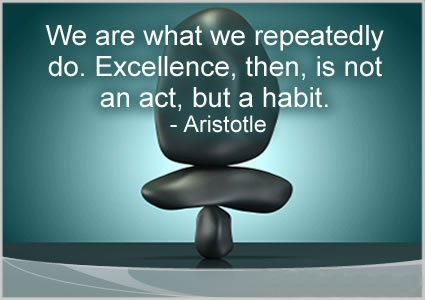Which Side Of History Will You Be On?
The increasing speed of change and technological breakthroughs, combined with the growing fascination regarding “millennials” and their impact on the world has raised (older) people’s consciousness about the fact that they will not be the ones writing the history books about this period in human history.
While this feverishly plays out on the world stage of geopolitics, gun laws, sexuality, gender equality and nationalism, it is also a great question to ask regarding one’s own domain of work.
Within our domain of leadership development, coaching and performance, one of the biggest areas that this question is of interest concerns the relevance and importance of your body and your physical state.
Philosophical tradition and popular culture both contain a strong strain of separation of body and mind, from Rene Descartes’ distinction between the material and the immaterial through Hollywood’s desire to contrast the sweaty, muscle-bound jock in the gym to the thin, bespectacled nerd in the library. These are powerful historical contexts that operate in our society to this very day.
However, while the past may be pulling us in one direction, the present and the future, led by an increasing amount of (neuro)scientific research is pulling us in quite another.
In particular, movement, exercise, nutrition and sleep are all being shown to have major impacts on the quality of our rational and emotional function – and not in some touch-feely, mumbo-jumbo way, but supported by hard scientific data and research.
With regard to nutrition for example, we now know that protein and carbohydrate influence our brains very differently. The former stimulates dopamine, a neurotransmitter associated with alertness and energy, while the latter stimulates the formulation of serotonin, a neurotransmitter associated with sleep and the reduction of anxiety. Your everyday food choices can play a major role in your moods and emotions. (1)
With regard to development, it used to be believed that the neo-cortex was the area of the brain responsible for “learning” and the cerebellum was the area of our brain responsible for “movement and motor control”. However, more recently, it has been discovered that the cerebellum also plays a big role in learning. Your everyday movement choices can play a major role in your cognitive abilities. (2)
Despite findings such as these, the old traditional approaches to leadership development and coaching that focus purely on rational and logical approaches persist. Inertia, ‘sunk cost mentality’ and vested interests are strong factors.
If your leadership development and coaching approach is not taking into account the role of the physical body, ask yourself the question: “When the history of facilitating leadership and performance comes to be written, which side of history will I be on?”
It is a powerful question.
Marcus Marsden, PCC
Managing Partner The Coach Partnership
References
1 http://healthyeating.sfgate.com/food-affects-neurotransmitters-11501.html
2 https://cerebellumandataxias.biomedcentral.com/articles/10.1186/s40673-016-0049-z







